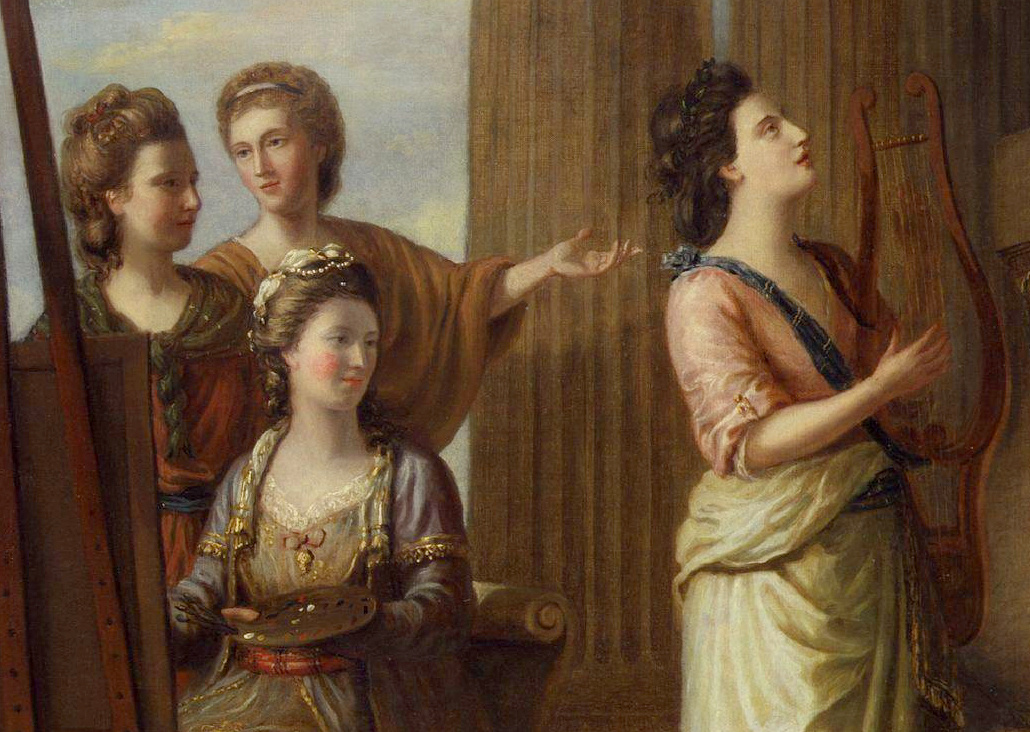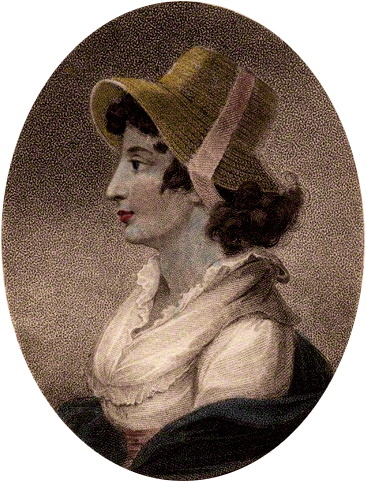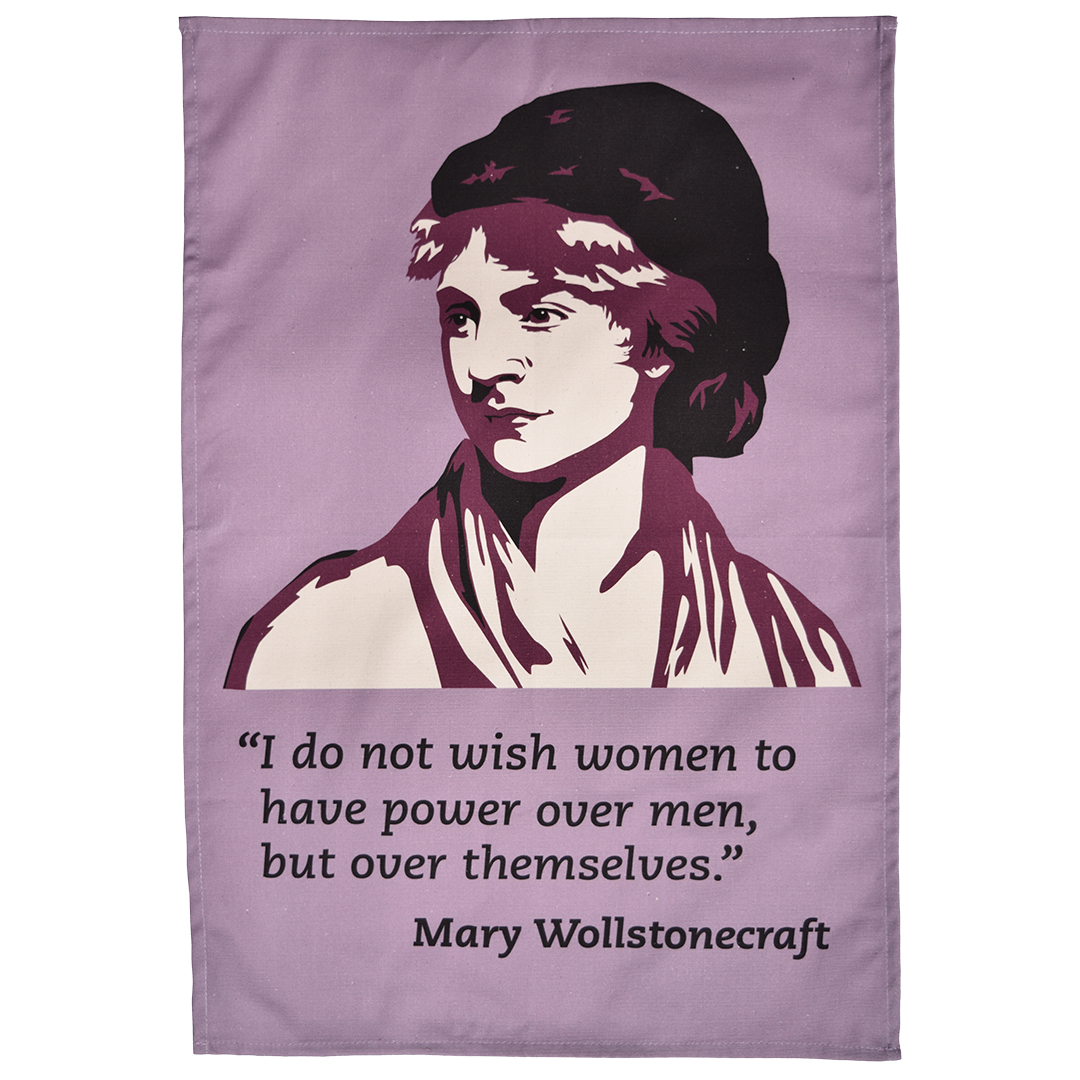The Life and Work of Anna Laetitia Barbauld
Posted by Pete on 20th Jun 2023

Why was one of the eighteenth century's greatest poets erased from the history of British literature?
“... so long as letters shall be cultivated in Britain, or wherever the English language shall be known, so long will the name of this lady be respected.”
Imperial Magazine
Anna Laetitia Barbauld was born 280 years ago today, in 1743.
Barbauld went on to become one of the most prominent poets and essayists of her time, with a writing career that spanned more than half a century.
Speaking out at a time when women were expected to be dutiful wives and silent daughters, Barbauld’s story is radical through and through.
And yet, curiously, she's been almost entirely forgotten.

A portrait of Anna Laetitia Barbauld, Britain's forgotten poet
Barbauld – family name Aikin – was born and raised in Kibworth, Leicestershire.
She was the daughter of two dissenters, free thinkers who found their own path to God, independent of the institutional Church of England.
Her dad, John, was a dissenting minister and school teacher. The young Anna forced him to teach her the subjects which he taught his male students – the classics, Latin, Greek, modern languages.
Such intellectual pursuits were then considered very ‘unwomanly’. This was Georgian England, stifled by patriarchal gender norms about education.
But Anna’s inquisitiveness could not be stopped.
In 1758, the family moved to Warrington, where her dad found work at a particularly radical academy for dissenters. It attracted radical thinkers from all over, like Joseph Priestley and the future French revolutionary Jean-Paul Marat.
It became known as “the Athens of the North.”
This heady intellectual atmosphere couldn’t help but influence Anna, and soon enough she was known as a gifted writer of both prose and poetry.
In 1773, she published her first collection of poems. They were an instant, national success, and Anna became one of the pioneering voices of Romantic poetry in Britain.
Barbauld's poetry made a founding contribution to the development of British Romanticism, influencing writers like William Wordsworth, William Blake and John Clare
Click to view our John Clare tea towel
In 1774, she married Rochemont Barbauld, a descendant of French Huguenots, and began to work with him in running a dissenter school in Suffolk.
By the 1780s, Anna Barbauld was famed in England as both a literary sage and a pedagogical pioneer.
Much of Barbauld’s life was already radical, in a sense. The fact and act of being a public intellectual while being a woman was both unconventional and courageous, and her non-conformist religious beliefs were at the heterodox margins of a society dominated by Anglicanism.
But the new era begun by the French Revolution led Barbauld to become even more of a radical in politics.
In 1787 she moved to Hampstead where her husband Rochemont took up work as minister of the Unitarian Chapel there.
Unitarian London was the hotbed of radical politics in late eighteenth-century England. This Christian sect, which stressed reason as a way to God, was home to the likes of Mary Wollstonecraft and Richard Price.
In tandem with other English thinkers, Anna Barbauld was radicalised by the showdown with absolute monarchy in France after 1789.
The possibility of a new world of new political opportunities was emerging in Britain, and Barbauld was right at the heart of it all.
This was the time of great radical thinkers like Mary Wollstonecraft, William Wilberforce, and Thomas Paine
Click to view our Mary Wollstonecraft tea towel
When Parliament voted down a bill which would have enfranchised dissenters – as yet, only Anglicans were allowed to sit as MPs – Barbauld condemned the move in print.
Making fun of the argument that enfranchising dissenters would see them take all public offices, she wrote:
“We thank you for the compliment paid the Dissenters, when you suppose that the moment they are eligible to places of power and profit, all such places will at once be filled with them.”
In 1791, Barbauld wrote in support of William Wilberforce, after his bill for the abolition of the slave trade was defeated in Parliament.
She warned that, if slavery were not abolished in the British empire, the British people would be corrupted beyond repair.
A year later, she publicly demanded an end to the war against revolutionary France, as a moral imperative of every British citizen:
“We are called upon to repent of national sins, because we can help them, and because we ought to help them.”
It was ultimately because of all this political radicalism that Anna Barbauld’s legacy was buried for so long.
In 1812, she was judged to have gone ‘too far’ when she published a poem, Eighteen Hundred and Eleven, which suggested the British empire was doomed by its endless wars against France.
The future of human liberty lay instead in the new republics of America, she argued.
Reviewers denounced the text. And later, Barbauld fell foul of the reactionary turn of many of her erstwhile Romantic allies.
Men like William Wordsworth and Samuel Taylor Coleridge had initially supported the French Revolution, like Barbauld.
But while she kept the faith, they turned to Toryism, and erased Barbauld from the history of Romantic literature, on account of her radical politics and her gender.
For decades, the memory of Barbauld was forgotten. Even now, she’s still less well-known than she ought to be.
A giant of the intellectual and political history of England, Anna Laetitia Barbauld's is a name we should all know.


